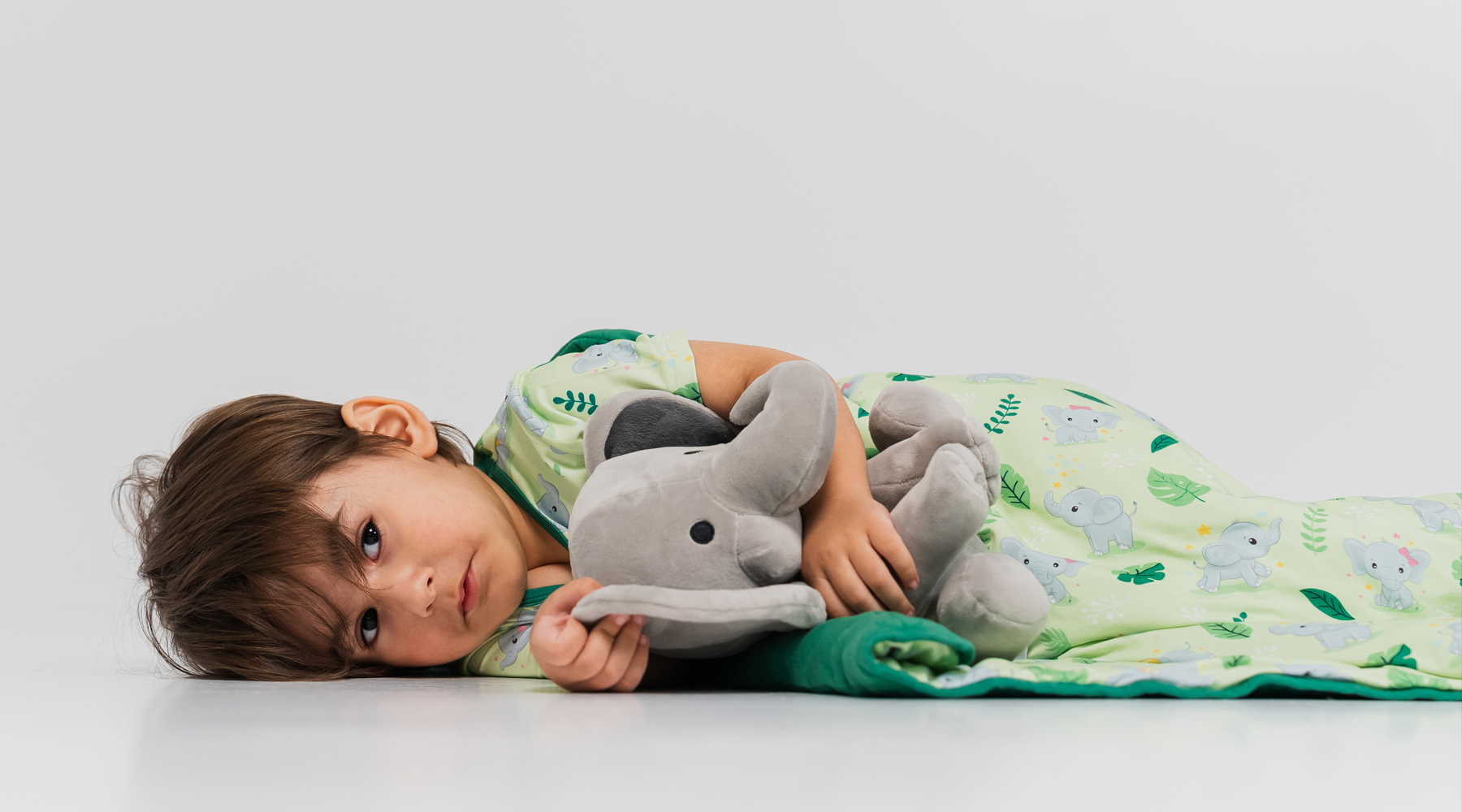

Let's bust a myth right out of the gates: getting your baby to bed at a regular and consistent time is a tough feat. There are countless sample schedule that make baby sleep seem like a breeze, but let's be honest, reality doesn't always align. If your little one has a laidback and adaptable nature, then sleep is likely to follow suit. If your child is more sensitive or times time warm up, their sleep journey may be a little more drawn out, and that's perfectly okay!
Let's dive into what a bedtime might look like for your baby. And no, we don't mean time on a clock for this, either.
Establishing a consistent bedtime for your little one can take some time as their sleep patterns mature and develop. Generally speaking, their bedtime may vary between 9pm and 11pm, or even a tad bit earlier or later, as newborns tend to have a wider range of sleep patterns. Once your baby's circadian rhythm is fully developed around the 12-week mark, you may notice their bedtime shifting earlier to somewhere between 6pm and 8pm. It's a good idea to observe their natural sleep patterns by keeping a log (yes, a written journal) to better understand their unique rhythm.
This approach helps you identify the number of naps your little one typically takes, how long they stay awake between naps and bedtime, and when they settle down for a restful night of sleep. By gathering this information, you'll be better equipped to determine the ideal bedtime that allows them to sleep peacefully for a good stretch of time.
If your little one has already had a good night's rest, we recommend taking a look at their sleep patterns during the night, particularly focusing on the longest and most restful stretch of sleep.
Another factor to consider is the time they wake up in the morning and how long they usually stay awake during the day.
Remember, not all babies sleep for a full 12 hours at night. In fact, research indicates most babies generally sleep for about 10.5 to 11 hours overnight. It's important to have an idea of how long they typically sleep at night when planning their bedtime, so you don't expect them to sleep too much.

We also believe in letting your child's average awake time guide their bedtime. We wouldn't want to unnecessarily keep them awake just to meet a specific bedtime on the block. For example, if your little one typically stays awake for about 3 hours and their last nap finishes at 4:30pm, then it would be best for them to go to bed at 7:30pm.
Depending on your child's age, the average wake time varies. The younger one is, the smaller time window your baby should be awake and therefore should influence in the bedtime schedule you implement.
It is worth noting that as nap time varies, so too does your bedtime to vary slightly as well. Total sleep decreases on the older end of having more naps in the day, while total sleep increases when you factor out a nap.
One of the greatest perks of having a routine is its flexibility to begin at any moment. Regardless of age, a bedtime routine works wonders as it serves as a gentle reminder that it's time to hit the hay. This nifty trick is particularly handy when your little one's bedtime fluctuates from day-to-day.

There's no particular science to implementing a bedtime routine, you just simply do and adjust along the way. Think about the elements you want to to include in the routine and take into account a couple of aspects such as:
Don't forget to also include consistent and regular activities to complement the bedtime routine, such as hygiene, using the bathroom, reading a bedtime story, and some much-needed cuddling before kissing your baby goodnight.
Bam & Stitch
Made by Moms, for Moms.

Tiffany and Annie, founders of Bam & Stitch, are two dedicated moms with a vision for eco-friendly and hypoallergenic kids' clothing that both children and parents adore. Each garment is crafted with care using sustainable bamboo viscose that’s soft, cozy, and durable for all of life's little adventures. Bam & Stitch designs feature vibrant colors, playful patterns, and thoughtful details like scratch-free tags and fold-over feet grippies. Tiffany and Annie are hands-on in every part of the business, from crafting one-of-a-kind designs to building lasting customer relationships, all while pouring their hearts into creating clothes that make kids feel amazing and give parents peace of mind.
The Complete Guide to Baby and Toddler Sizing
How to Wash & Maintain Bamboo Clothing
Mathematical Marvels: Where Comfort Meets Curiosity in Bam & Stitch's Latest Limited Edition Print
March: Bam & Stitch Partners with Girls Inc.
Spring Forward with Comfort: Your Little One's Guide to Daylight Savings
The Best Bedtime Routine for Happy, Rested Little Ones
Potty Training 101: A Stress-Free Guide for Parents
Share:
Transitioning Your Toddler Away from Diapers
Meet the Holiday Collection